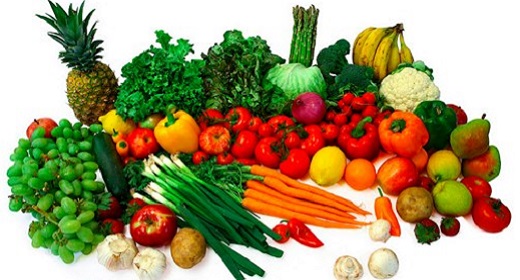by Hannah Sentenac: The Surprising Truth About This Controversial Vegetable…
We are proud to announce a new partnership with John and Ocean Robbins and the Food Revolution to bring our readers Summits, Seminars and Masterclasses on health, nutrition and Earth-Conscious living.
Sign Up Today For the Food Revolution Summit Docuseries
You probably have fond memories of eating potatoes. Whether baked, mashed, roasted, or grilled, these veggies are crowd-pleasers and can be delicious comfort foods.
In fact, potatoes are by far the world’s most popular vegetable. And each year, Americans eat an average of 126 pounds of them.
But a lot of confusion and differing opinions exist about potatoes.
So what’s the truth? Are potatoes healthy? And should you eat more or less of them? After reading this article, you might change the way you think about potatoes.
Why Are Potatoes Controversial?
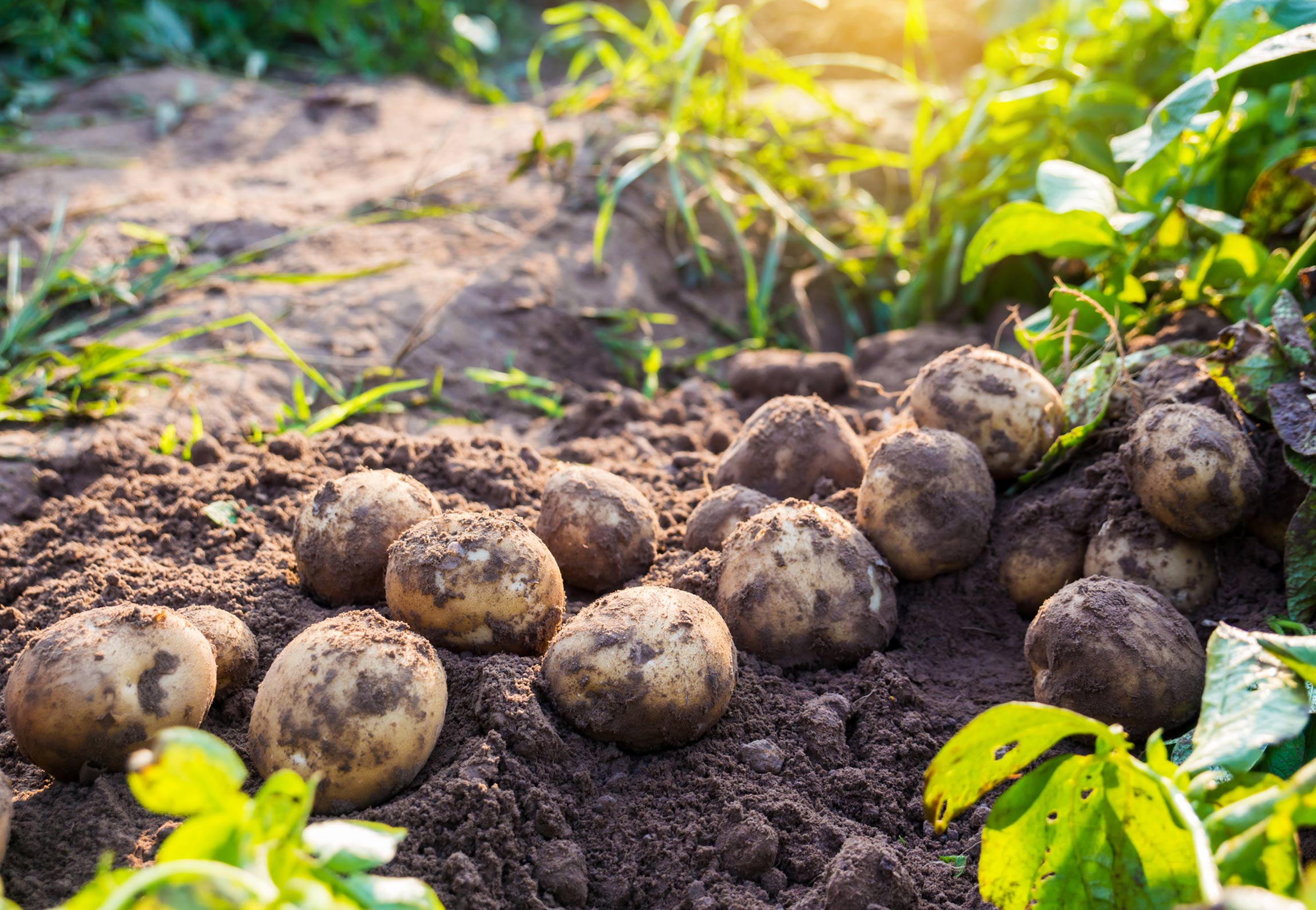
If you do an online search for potatoes, you’ll see a lot of discussion about whether they’re healthy or not.
Many nutritionists and health professionals recommend limiting potato consumption. And some food guides don’t even include potatoes in the vegetable group.
So why do people argue against eating potatoes?
Here are the three main reasons:
- Potatoes are high in carbohydrates, which some people believe causes weight gain.
- Potatoes digest rapidly and have a high glycemic load, which means that they can cause your blood sugar and insulin levels to spike and then dip.
- Highly processed foods like French fries or potato chips are the most frequently eaten forms of potatoes — and we all know how unhealthy those are.
But do potatoes deserve to be viewed as dangerous? And do they also provide some benefits?
First, let’s look into the weight concerns…
Do Potatoes Pack on the Pounds?
A 2011 study conducted by Dr. Dariush Mozaffarian at the Harvard T.H. Chan School of Public Health tracked the diet and lifestyle habits of 120,000 men and women for up to 20 years, looking at how small food choices contribute to weight gain over time.
The researchers concluded that there’s a strong association between potatoes and weight gain. Potato consumption was also linked to increased risks of heart disease and type 2 diabetes, as well.
But it’s not all bad news for spud lovers. According to St. Louis-based registered dietitian Alex Caspero, RD, “…potatoes are not the enemy! How we eat them is.”
While many of us eat veggies, like spinach and broccoli, in their natural state, we eat most of our potatoes processed or fried as chips and french fries. Even our baked or boiled potatoes are often peeled (losing the vitamins, minerals, and fiber found in the skin), mashed with sticks of butter or cream, and loaded with fatty toppings like chili and sour cream.
But, in a study published in the Journal of the American College of Nutrition in 2014, researchers found that when people followed healthy recipes, they lost weight even while eating five to seven servings of potatoes per week.
So it looks like potatoes are no weight loss panacea. But it also seems that their preparation, what you eat with them, and how they fit into your overall diet is what matters.
What Happens When People Eat a LOT of Potatoes?
When traditional indigenous populations have enjoyed potato-heavy diets, their rates of disease have often been low.
Take the Kitavans of Papua New Guinea. Their traditional diet is based heavily on sweet potatoes, yams, and other tubers as food sources.
According to a study published in the Journal of Internal Medicine, as of 1994, when many Kitavans were still eating their traditional diet, they almost never suffered from strokes or heart disease. They also had lower blood pressure and lower weight when compared with a Westernized population.
Other native groups, like the Tukisentas, eat a more than 90% carbohydrate diet (mostly from sweet potatoes). They are fit and healthy, with low and nearly non-existent rates of modern chronic diseases like heart disease and diabetes.
And let’s not forget about the longest-lived people in the world, the Okinawans, who get more than 50% of their daily calories from a type of purple sweet potato.
What About the Glycemic Load of Potatoes?
When you eat carbohydrates, your blood glucose (also known as blood sugar) levels rise and fall.
The glycemic load indicates the rate at which various amounts of carbohydrates are formed into glucose and released into your bloodstream. Potatoes have a relatively high glycemic load, but it varies between different types of potatoes.
On a scale of 0 to 100, a baked white potato has a glycemic load of 41-61 (which is considered moderate to high). And sweet potatoes generally have a GL of 19 (which is considered low).
Due to their high antioxidant content, colored potatoes (like red and purple) have a lower glycemic load than white.
Why Some People Might Want to Watch Their Potato Consumption
Potatoes can be a healthy choice for most people, but three groups might want to minimize their consumption (particularly of white potatoes): pre-diabetics, diabetics, and people who are overweight.
Diabetes is a condition in which the body can’t properly produce or respond to insulin. Carbohydrates aren’t metabolized as they should be, which leads to a higher concentration of blood glucose.
As Dr. Joel Fuhrman says, “In the case of white potatoes, the literature is still incomplete, but it is clear that a large variety of more healthful carbohydrate sources exist, and that these options should be emphasized, especially in those who are obese and/or diabetic.”
For those who are not healthy or at an optimal weight, he advises eating fewer potatoes and more beans, greens, cauliflower, mushrooms, and onions.
What Nutrients Do You Get When You Eat a Potato?
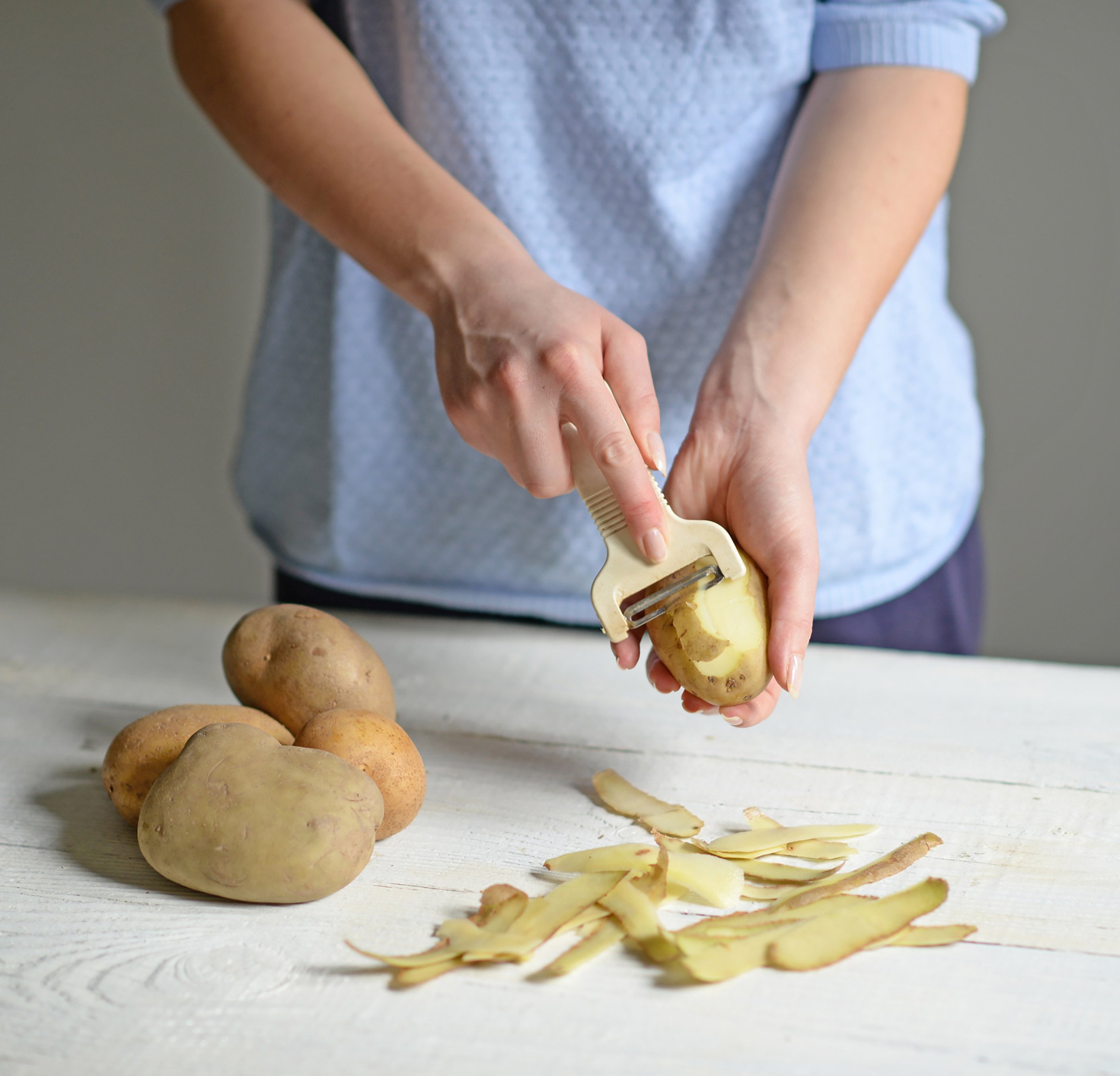
While different types of potatoes have different nutritional profiles, they all share certain health benefits, including:
- Potatoes are high in antioxidants. Some potatoes have more antioxidants than others, but all potatoes contain carotenoids, a class of plant pigments that protect against chronic disease and inflammation.
- Potatoes may help with digestion. Potatoes contain resistant starch, a particular kind of starch that isn’t broken down by the small intestine. Instead, it reaches the large intestine and feeds your body’s beneficial bacteria. When resistant starch reaches the large intestine, your body’s beneficial bacteria turn it into short-chain fatty acids such as butyrate. A 2011 study published in the World Journal of Gastroenterology found that butyrate can help protect against colon cancer and reduce inflammation in the colon.
- Potatoes may aid bone health. The minerals iron, phosphorus, calcium, magnesium, and zinc in potatoes help the body build and maintain bone structure and strength. Keep in mind, however, that most of the minerals are in the potato skin and are lost if you peel them.
The russet is by far the most widely eaten potato in North America, and it’s definitely not the most nutritious spud out there. Even so, one medium, baked russet potato with its skin intact contains:
- Calories: 161
- Fat: 0.2 grams
- Protein: 4.3 grams
- Carbohydrates: 36.6 grams
- Fiber: 3.8 grams
- Vitamin C: 28% of RDI (recommended daily intake)
- Vitamin B6: 27% of RDI
- Potassium: 26% of RDI
- Manganese: 19% of RDI
- Magnesium: 12% of RDI
- Phosphorus: 12% of RDI
- Niacin: 12% of RDI
- Folate: 12% of RDI
Types of Potatoes and Their Different Health Benefits
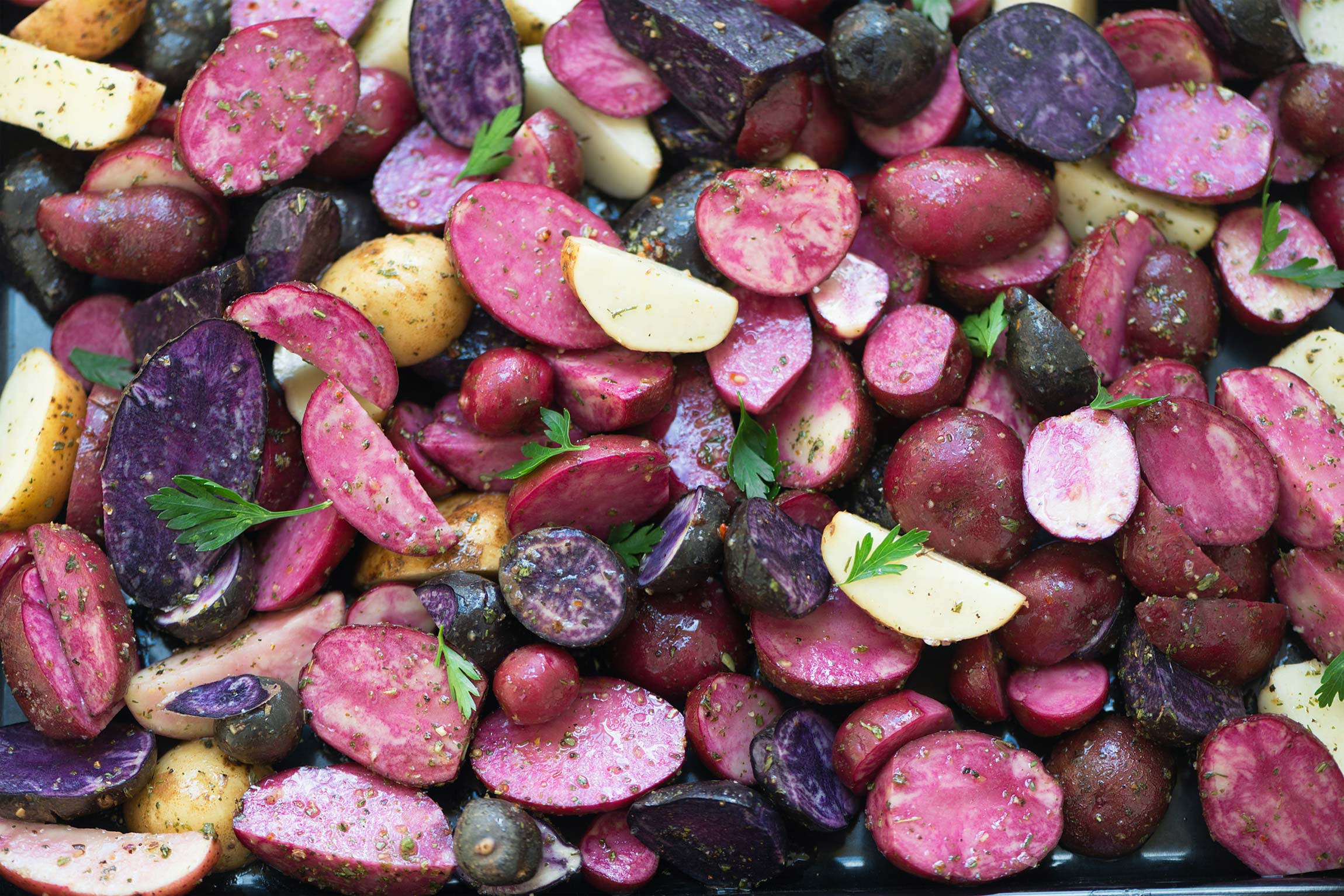
Potatoes are a diverse bunch. More than 200 different varieties of these starchy veggies are sold in the U.S., with more than 4,000 existing in the wild.
Each type of potato boasts different health benefits. Here’s more information on some of the more popular potato varieties:
Yellow (Yukon) Potatoes
Yukon Gold potatoes are a cross between a North American white potato and a wild, yellow South American potato. They have a similar nutritional profile to white potatoes and russets.
Red Potatoes
These rosy-hued varieties have a thin skin that’s packed with antioxidants and other nutrients. A 2004 review published in the journal Plant Soil and Environment found that red-skinned (and purple) potatoes have two to three times more antioxidant potential than white potatoes. Their red color also means that these potatoes contain anthocyanins, a specific pigment that’s been shown to improve visual and neurological health, protect against various diseases, and lower LDL (bad) cholesterol.
Purple and Blue Potatoes
A 2011 study published in The Journal of Nutrition found that purple potatoes significantly decreased both inflammation and DNA damage in healthy males. Another study published in 2012 in the Journal of Agricultural and Food Chemistry found that within hours of consumption, violet-hued potatoes increased the antioxidant capacity of the bloodstream. Researchers concluded that purple potatoes lower the risk of heart disease and stroke in patients with hypertension without causing weight gain.
Sweet Potatoes
Surprise! Sweet potatoes actually aren’t in the potato family at all. They’re dicots — a family of flowering plants that also includes morning glories. Sweet potatoes are incredibly nutrient-dense and have anti-cancer, antidiabetic, and anti-inflammatory properties. They contain vitamins A, C, B6, B5, potassium, and manganese.
GMO Potatoes
In 2015, a genetically modified “Innate” potato was approved by the USDA and FDA. The company, J. R. Simplot, created the potato primarily to resist bruising and browning. They might make sense if, while slicing potatoes, you’ve felt a great need for a high tech way to avoid ever having to cut bruises out of potatoes again.
Editor’s note: Potatoes are on the Environmental Working Group’s “dirty dozen” list of the most pesticide-contaminated foods. So if you want to reduce your exposure to pesticides and GMOs, look for potatoes labeled 100% organic or non-GMO.
What Matters Most If You Want to Eat Potatoes?
A large body of evidence tells us that for most people, potatoes (and especially sweet potatoes) can make a valuable contribution to a healthy diet. But a potato’s preparation is what makes it a healthy or unhealthy choice.
A 2017 study published in the American Journal of Clinical Nutrition found that eating fried potatoes two or more times per week doubled the risk of death.
Processed foods, like potato chips, are full of unhealthy fat and huge amounts of sodium. And when people eat baked potatoes and mashed potatoes, they often use lots of butter, salt, and other unhealthy ingredients.
How to Enjoy Potatoes the Healthy Way
When it comes to lowering your glycemic load and maximizing your nutritional profile, sweet potatoes are the clear winner. And whichever type of potato you eat, the best way to maximize the health potential of potatoes is to eat them whole with the skin on.
If you’re looking for something lighter and more nutritious to put on your potatoes, here are some healthier toppers to try on your baked potato or sweet potato:
- Use salsa instead of sour cream. Use this healthy, tomato-based mix to top your potato instead of sour cream. It adds a spicy kick, and there are only 17 calories in a ¼ cup.
- Add nutritional yeast to boost the protein and nutrients. Instead of cheese, opt for this cheesy-tasting, savory, nutrient-dense topping.
- Make it a meal with vegetarian chili. While chili-topped baked potatoes are a classic favorite, traditional beef chili has all the problems that typically come with modern meat. Try this recipe for Loaded Veggie Chili from Veggie Quest and fill up on beans, onions, and bell peppers, instead!
3 Healthy, Plant-Powered Potato Recipes That Keep the Nutrients Intact
1) Plant-Based Potato Salad
Made with a variety of fresh, crunchy veggies, this potato salad is creamy (without traditional mayo) and is perfect for a potluck.
Get the recipe here (from Nora Cooks)
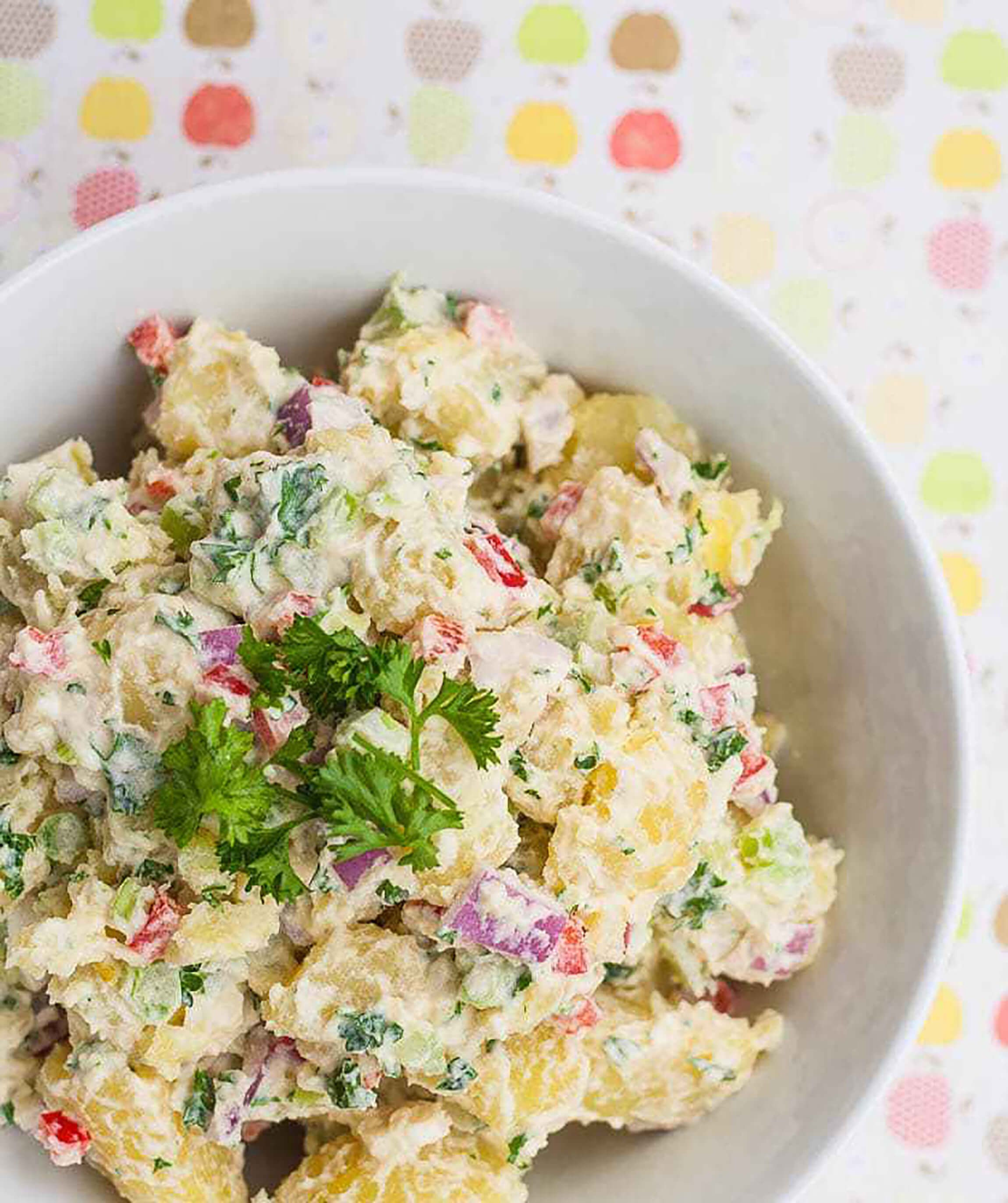
2) Southwestern Stuffed Sweet Potatoes
Load up nutrient-packed sweet potatoes with beans, cabbage, avocado and other healthy ingredients to create a flavor-packed meal.
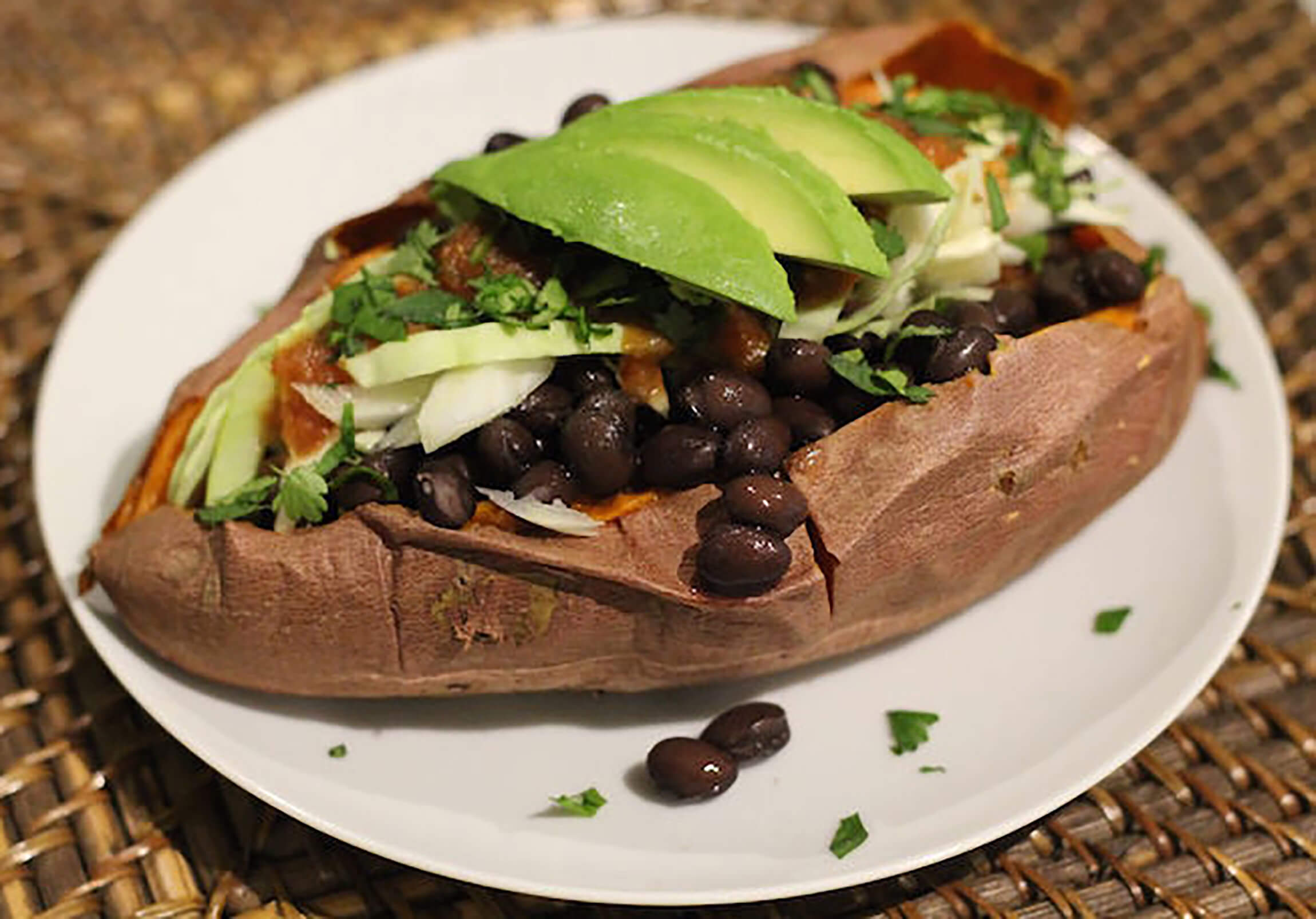
3) Purple Potato Breakfast Hash
To maximize your antioxidant quotient, try this colorful breakfast hash that uses purple potatoes, rosemary, sage, eggplant, and onion.
Get the recipe here (from Plants-Rule)
A Final Concern: What’s the Deal with Green Potatoes?
Keep potatoes around long enough, and the spuds will start turning green (thanks to chlorophyll) and grow sprouts.
The question is: Are potatoes safe to eat when they’re green and have sprouts?
While chlorophyll itself is harmless, it can indicate the presence of solanine, a toxin which protects the potato against insects, bacteria, and other threats.
While all potatoes contain small amounts of solanine, green potatoes produce more.
The consumption of high levels of this toxin can cause cell damage and intestinal issues in humans.
While you can’t tell solanine concentration just by looking at a potato, it’s likely that the greener the potato, the more solanine it contains.
Cooking doesn’t reduce solanine levels, but you can cut the green parts out and remove the sprouts. Peeling a green potato can also reduce its solanine levels, but if a potato is very green or tastes bitter, it’s best to avoid eating it for safety’s sake!
To prevent your potatoes from turning green, store them in a dark, cool place.
The Bottom Line: Are Potatoes Healthy?
Colorful potatoes, such as purple potatoes and sweet potatoes, have the most nutrients. And if the Okinawans are any indication, they can make a considerable contribution to your long-term health.
However, if you are diabetic or struggling with weight issues, you may want to limit your intake of white or russet potatoes. For most people, whole potatoes (especially sweet potatoes) can make a valuable and affordable contribution to a healthy, balanced diet. But no matter how you eat them, it’s best to avoid them fried, processed, or covered in unhealthy toppings.











